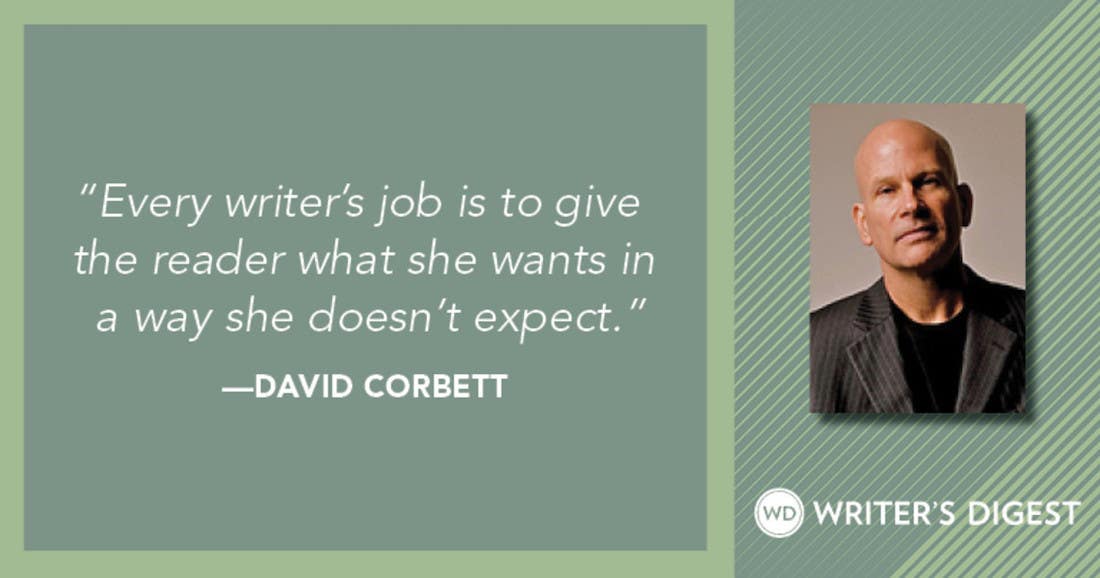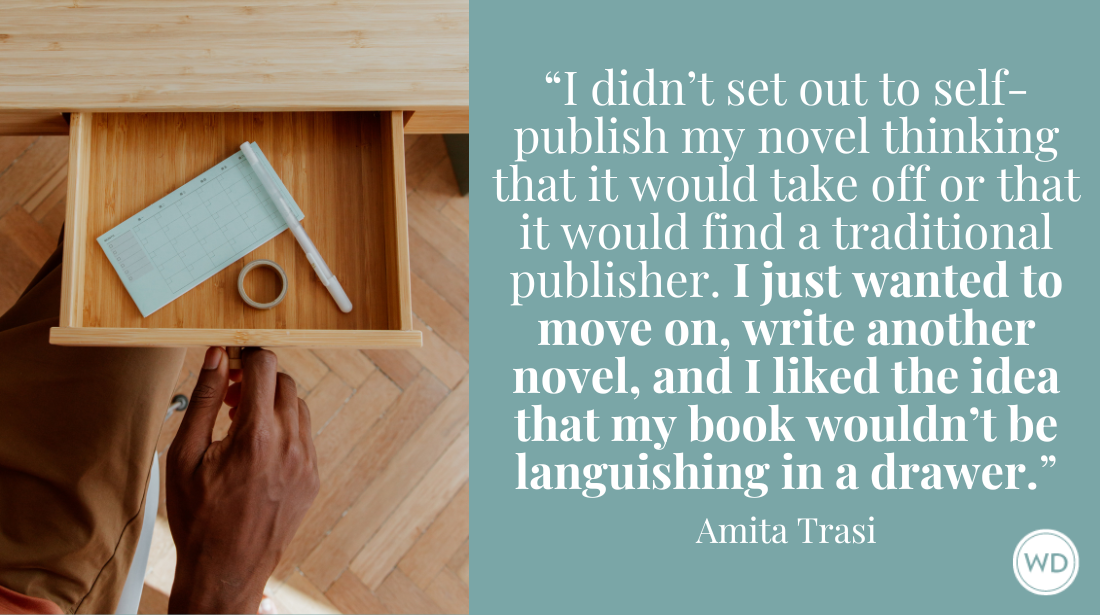17th Annual Short Short Story Competition Winner: The Removal
[Enter the current Short Short Story Competition today!] “The Removal,” by Lauren Schenkman, is the winning story for the 17th Annual Writer’s Digest Short Short Story Competition. For complete coverage of this year’s awards, including…
“The Removal,” by Lauren Schenkman, is the winning story for the 17th Annual Writer’s Digest Short Short Story Competition. For complete coverage of this year’s awards, including an interview with Schenkman, check out the July/August 2017 issue of Writer’s Digest. You can also view a complete list of winners and an extended interview with Schenkman. To read all 25 winning entries, check out the 17th Annual Writer’s Digest Short Short Story Competition Collection. In this bonus online exclusive, you can read Schenkman’s winning entry.
The Removal
Everything nonessential would be removed, the doctor had said. Victor, desperate, had said Yes, yes of course, but now, as he was being laid out on the operating table, the doctor’s statement sounded frighteningly extreme. The doctor bent over him, the swivel lamp a supernova behind his green cap. His brown eyes with their bristling lashes peered down over his mask. The doctor was maybe ten years older than Victor, in his forties, and very successful, with a jogger’s physique. Victor wondered if the doctor himself had undergone the surgery at some point, but it seemed rude to ask.
“How long will it take?” Victor had asked.
“It’s impossible to tell before we open you up. But judging from the scan, there’s plenty to do.”
Now there was a sharp pinch at Victor’s forearm. The anesthetic flowed in. In minutes, it was as though someone had loosened the ribbon connecting Victor’s mind to his body. His consciousness hovered a few inches above the table, like one of those angels who are just a baby’s head and wings.
“We’ll get to the most recent things first,” the doctor said, his voice muffled by his mask. And he was right. Out came two rubbery lumps, like fat on the edge of a cheap steak, which Victor recognized immediately. One was the dental work he’d been overcharged for that summer; the other was the new woman at work who had been promoted to the position he’d been eyeing. Then came long, slender ribbons of stringy stuff, like linguine—his hatred of March, a pointless month, and of harmonica music.
“Just getting started,” said the doctor, whose gloved hands were already filthy with fluid, not red like blood, but a brownish liquid like the runoff from cooked meat.
The next piece was considerably larger—a softball-sized clump with many lobes, each like the cartilage on the end of a chicken bone. That was Olympia, his ex: her superior taste in film; the cheerful persona she put on for other people and stripped off, like a too-tight dress, the minute they got home; even her luxurious, caramel-colored hair, which, on the day they’d met, had grabbed his attention from across the cafe. He’d later come to hate it. It had continued to be arrestingly beautiful even after Olympia herself had become unbearable to him.
When this large item lay on the surgical tray, dribbling a clear liquid, Victor was sure the doctor would now sew him back up. But he seemed to double his activity. He pulled out a constellation of fossilized giblets—the girls who had refused to talk to, date, or have sex with him. Then two nearly identical lumps, bristling with little hair-like rootlets—his jealousy of his friend Tod, who was slightly taller than him, and of his friend Chris, who was slightly better at pool.
There were a number of lumps that resembled wads of overchewed gum: resentments against the tax code, at nice jeans for being both exorbitantly expensive and consistently unflattering, and at the infuriatingly familiar tone with which homeless people asked him for change.
Two nurses in green scrubs had been helping discard the fetid matter, picking it up from the metal tray with steel pincers and placing it in small paper bags for the incinerator. Now it was coming out so fast that they simply scooped it up by the handful and dumped it into a tall white bucket. In fact, the volume of meat and fluid in the bucket was clearly much larger than his body cavity. Victor began to panic. How would there possibly be anything left of him?
“These are probably the parentals,” the doctor said, holding up two tumors as though they were a pair of newborn twins. “They’re smaller than average.” Victor wasn’t surprised: it was just his mother’s self-conscious laugh that he hated, his father’s dogged good cheer. The resentments against his siblings—slimy masses like calf liver—were small as well. He was the oldest and most intelligent of the three, after all, and had mostly gotten his own way. His little brother was, by some accounts, better-looking, though, and his sister had recently called him sexist for suggesting that the new woman had been promoted because of affirmative action.
The doctor slowed. Victor couldn’t feel anything, exactly, but he could sense an enormous pressure, as if something was being torn out by the roots. Finally, with a grunt, the doctor raised a huge grayish lump the size of two fists, wrinkled and striated like a brain or an underdeveloped fetus. This one had countless secret folds, its own organelles and cancers, each of which Victor could recognize and name. It had been growing in him since birth. It was his outrage that he, like everyone else, would never be completely happy. That life was both cruelly short and unbearably long, an eternity of never quite getting what he wanted, moment by moment by moment, until it ended.
“I think that’s everything,” the doctor said, panting. His green scrubs were splattered from neck to ankle, and he wiped his forehead with his arm, leaving a brown greasy smear. “How do you feel now?”
Victor could not respond. But if he could have, he might have said something like this: there was a wind blowing from somewhere, a warm wind fragrant of gorse and maybe rosemary, and this wind was blowing through a large and ancient shell. The shell, Victor knew instinctively, was extremely, inordinately old—older, somehow, than the earth itself, because by the time it had washed up on the universe’s first beach, it was already empty and clean.
Though Victor hadn’t spoken, the doctor smiled as if he had. “I knew it,” he said. “I knew it. It’s the same with all of them.”
And the wind continued to blow.
Brian A. Klems is the former Senior Online Editor of Writer’s Digest, and author of Oh Boy, You’re Having a Girl (Adams Media/Simon & Schuster). Follow him on Twitter @BrianKlems.



